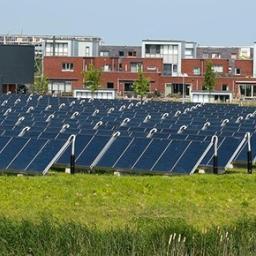Policy coherence recommendations to the European Green Deal
Implementation of the European Green Deal ‘will require intense coordination to exploit the available synergies across all political areas’. A nexus analysis that assesses potential synergies and trade-offs between policies, can support policy coherence. Political choices must be made if policies are incompatible.
The Horizon 2020 project SIM4NEXUS analysed the nexus between water, land, energy, food and climate (WLEFC nexus) from biophysical and governance perspectives, theoretically and in twelve cases.
Recommendations from modelling by the global and European cases
Large scale use of bioenergy from crops, plantations and forests may have severe trade-offs to water, land, global food security, climate adaptation and mitigation. Policies stimulating bioenergy should only be put in place if food security and climate-neutrality are assessed and likely.
Increasing the share of plant-based proteins in the human diet creates many synergies in the WLEFC nexus. The necessary shift from livestock to arable farming and horticulture, could be supported by the Common Agricultural Policy (CAP).
Recommendations from national and regional cases
There is great potential for the CAP to contribute to climate mitigation and adaptation, and sustainable use of water, land and energy, but putting this into practice has been proven difficult. Stricter environmental conditions for public funding and lowering the administrative burden for receiving support for voluntary measures, may stimulate sustainable practices.
Restoration of degraded and dehydrated agricultural landscapes deserves more attention. Large-scale monoculture has changed the regional hydrology and local climate, for example in the Czech Republic, Slovakia and Eastern Germany, causing severe drought and heat.
Recommendations from the policy analysis
Transitions proposed in the Green Deal are uncertain and complex, and require an experimental pathway. Therefore, effective monitoring must be in place. Policy evaluations must pay more attention to synergy and trade-offs between policies during implementation. A database of implemented and evaluated nexus projects would stimulate learning about synergy and trade-offs in practice.
A broad assessment of policy coherence between policy domains should become part of European impact assessments. Results can be used to define the nexus scope of the policy-making process.
Authors
Specifications
- Publication title
- Policy coherence recommendations to the European Green Deal
- Publication date
- 4 November 2020
- Publication type
- Article
- Page count
- 7
- Publication language
- English
- Product number
- 4319




